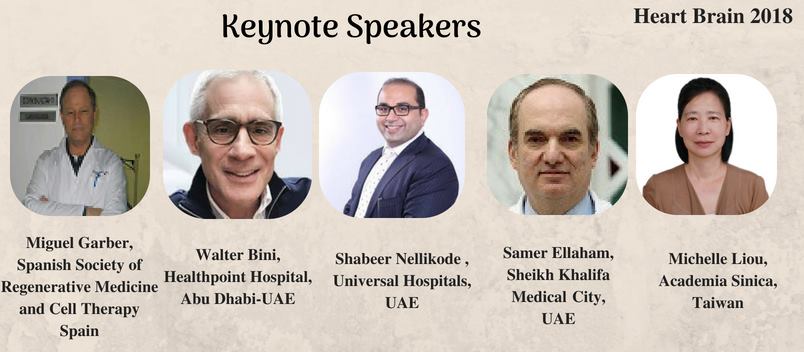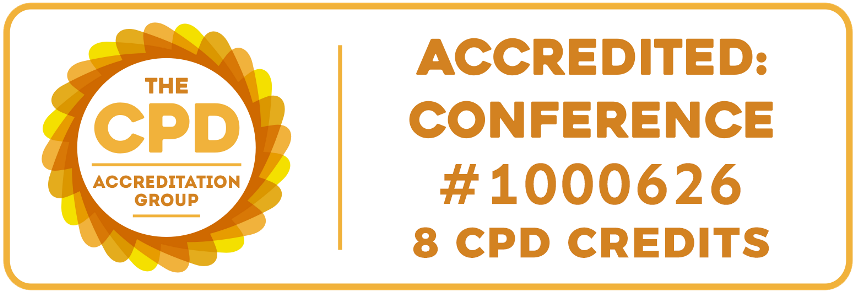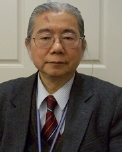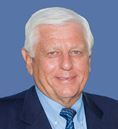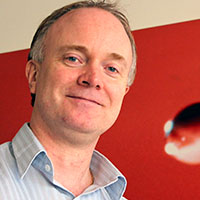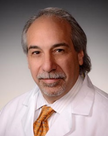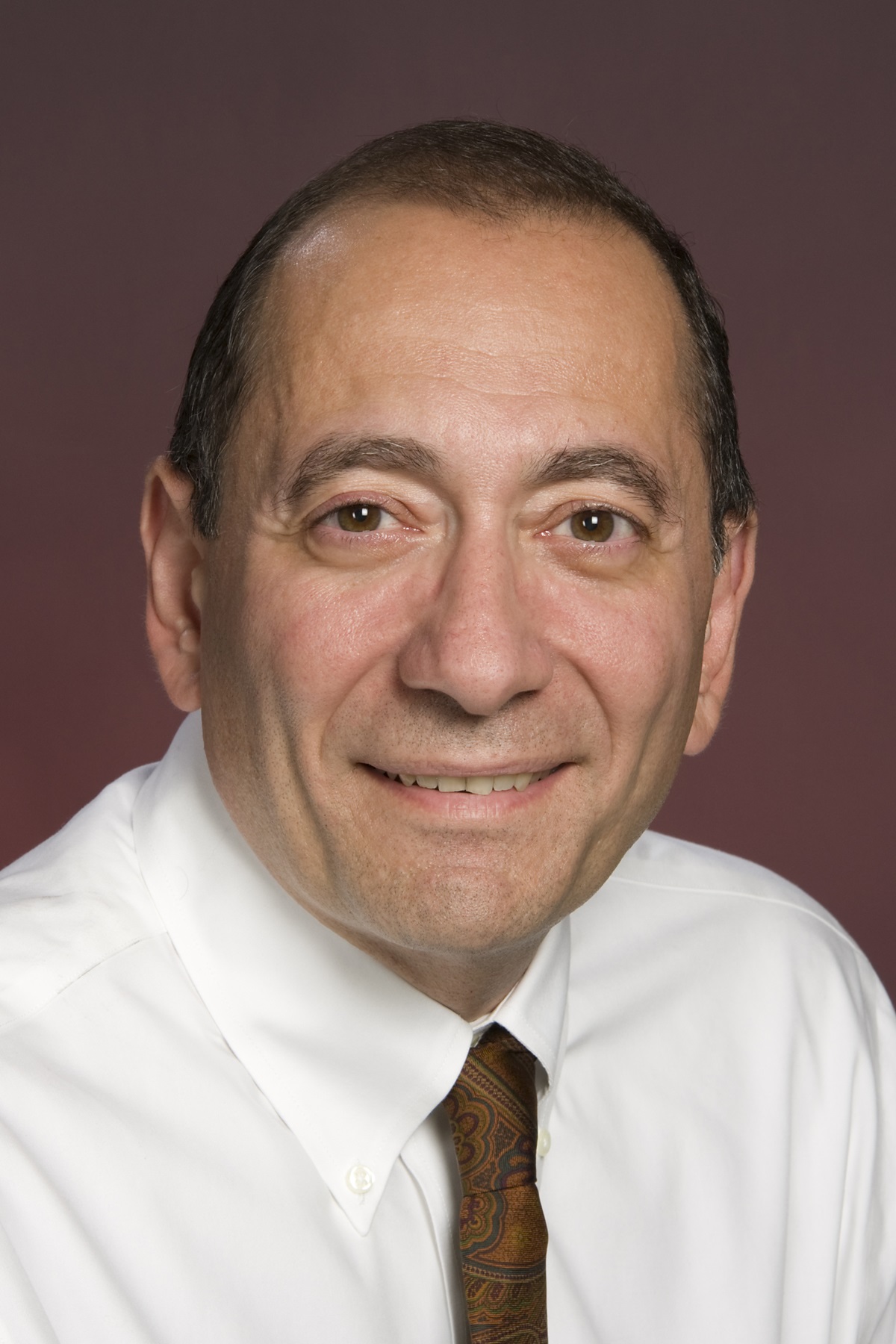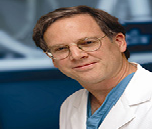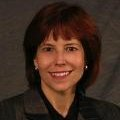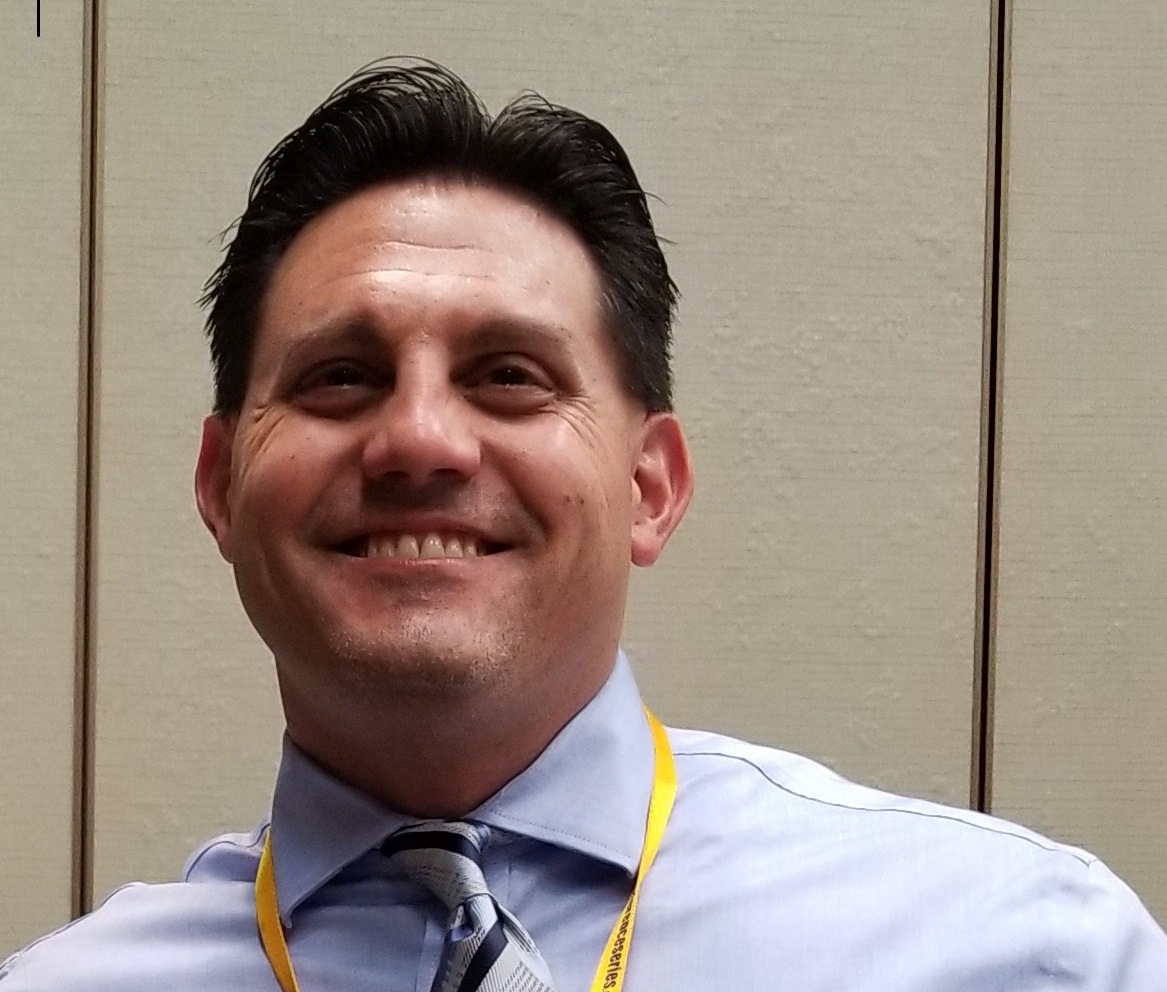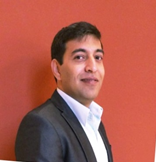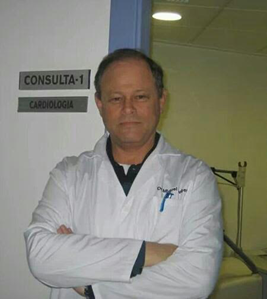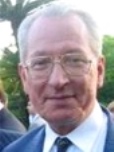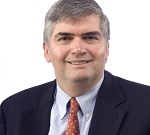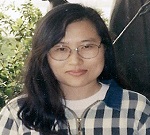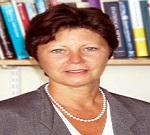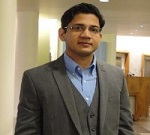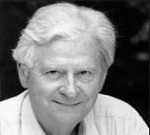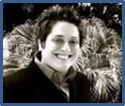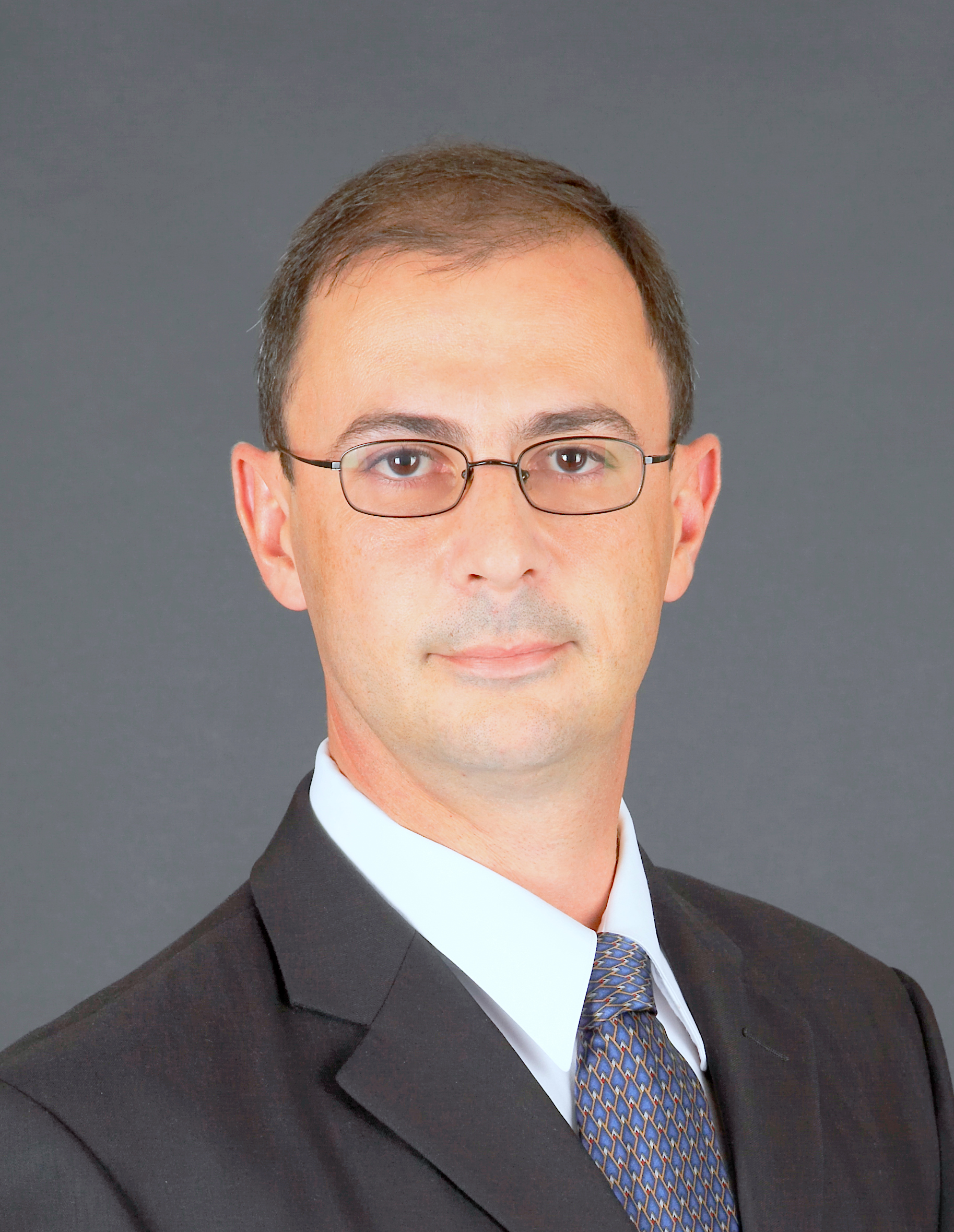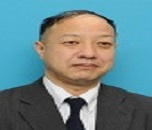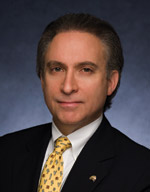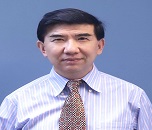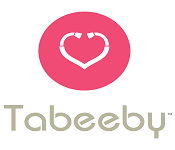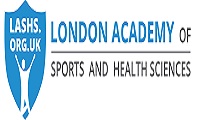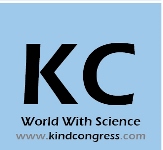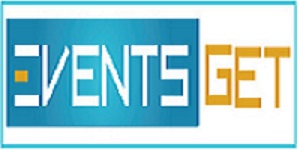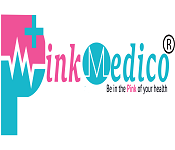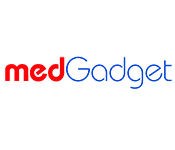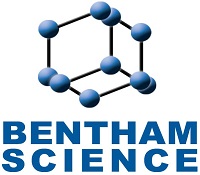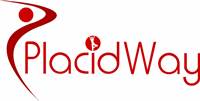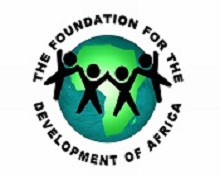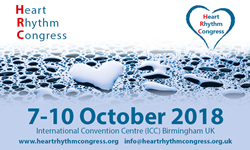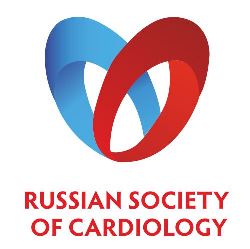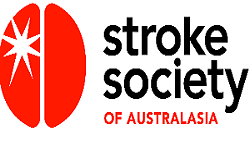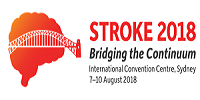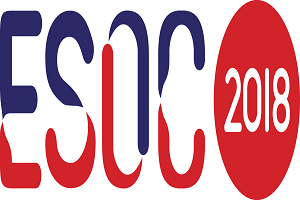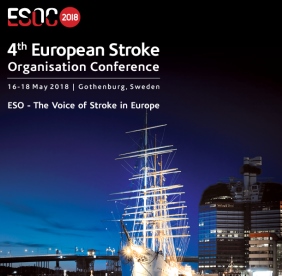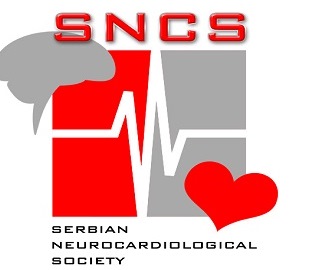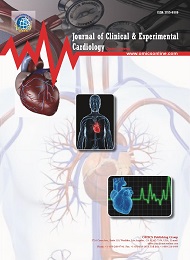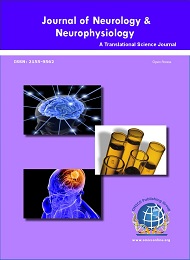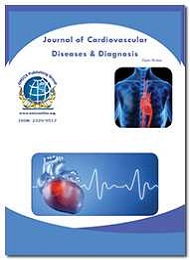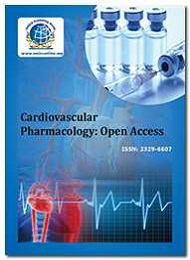Theme: Fostering Heart and Brain health worldwide
Heart Brain 2018
- About Heart Brain Conference
- Welcome Message
- Sessions/Tracks
- Market Analysis Report
- Past Conference Report
Heart Brain 2018 Congress
Heart Brain 2018 welcomes you at 5th World Heart and Brain conference from September 24-26, 2018 at Abu Dhabi, UAE. World Heart and Brain conference is a unique meeting that unites cardiologists and neurologists in order to pursue a holistic approach to understanding the connection between the heart and the brain. As a leader in the emerging multidisciplinary field of neuroradiology, Heart Brain 2018 has set the standard in the rapidly growing field of integrated medicine that encourages a broad spectrum of knowledge for improved practice and patient care.
Cardiology Conferences favors each one of the personalities to attend the “World Heart and Brain conference" during September 24-26, 2018 at Abu Dhabi, UAE, which comprises brief Keynote demonstrations, Speaker talks, Exhibition, Symposia, and Workshops. Heart Brain 2018 is one of the Cardiology and Neurology meetings which will be visited by all the honored cardiologists, Neurologist, directors, cardiac surgeons, cardio-thoracic surgeons, Neuroscience Professors, students, medical colleges and universities, business professionals and cardiology organizations under a solitary rooftop. The assembling will be dealt with around the subject “Fostering Heart and Brain health worldwide".
We are organizes a series of conference over 1000+ Global Events inclusive of 300+ Conferences, 500+ Upcoming and Previous Symposiums and Workshops in USA, Europe & Asia with support from 1000 more scientific societies and publishes 700+ Open access journals which contains over 30000 eminent personalities, reputed scientists as editorial board members. World-renowned speakers, the most recent methods, advances, and the newest updates in neurology are hallmarks of this conference.
Why to attend?
With members around the world focused on learning and getting answers from Cardiology & Neurology, this is your best chance of getting to the largest assembly of participants in the Cardiology & Neurology field. It gives exposure to ongoing studies in cardiology and neuroscience. Provide opportunities for companies to present their products and organize face-to-face meetings with researchers who increase their business opportunities. It also gives companies information about their competitors. Presentations, dissemination of information, meeting with current and potential researchers, attracting new therapies and care, and recognition of this three-day event. Generally respected speakers, the latest frameworks, methods, and latest updates in the Cardiology and Neurology field are a testament to this conference. This World Cardiovascular Conference, or rather all the meetings of Cardiology and Neurology, cardiology and neurological events, and the Congress of Cardiologists will help organize the framework, B2B, between experts and academics.
Target Audience:
Neurologists and Cardiologists, Cardiology Students, Scientists, Neurologist, Scientist, Cardiology Researchers, Neuroscience Professors, Cardiology Faculty, Medical Colleges, Pharmaceutical company, Research scholars, Diagnostics companies, Students, Researchers and others, Cardiology Associations and Societies, Business Entrepreneurs, Training Institutes, Software making associations, Manufacturing Medical Devices Companies and Data Management
Conference Sponsor and Exhibitor Opportunities
The Conference offers the opportunity to become a conference sponsor or exhibitor.
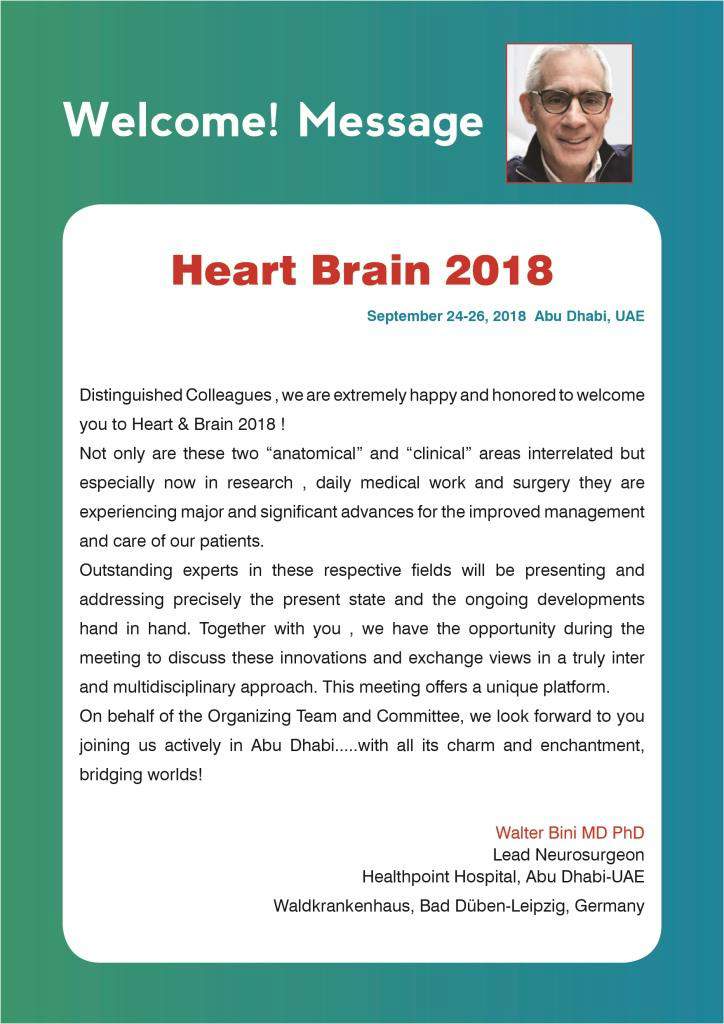
Highlights of latest advances on Heart Brain 2018
Track 1: Heart-Brain
The heart is one of the most significant organs in the human body, because it is one of the leading ways for connecting us to each other and the Life. Major role of the heart is to pump blood to all the systems of the body. The brain is one of the greatest complex and superlative organs in the human body. The heart-brain connection is dominant, with each strongly reliant on the other. A stroke is related to a heart attack, but it affects the brain. A heart attack happens when blood suddenly can't get through to a part of your heart.
Track 2: Heart Disease and Brain Health
According to researchers, they have examined the evidence on factors that affect our blood vessels and heart health and shown that they also affect brain health. Heart is the foremost cause of death in America. Stroke ranks fifth, and it is also a leading cause of severe, long-term disability. Vascular—blood vessel—problems include atherosclerosis and arteriosclerosis. Both are well-known contributors to heart disease. These same systems can also harm brain function by interfering with the stable supply of oxygen-rich blood that sustains brain cells.
A healthy brain, maintained by sufficient blood flow, is essential for living a longer and fuller life. Brain health allows thought, prearranged action and emotional influences that influence the daily lives and growth of individuals, families and societies.
Track 3: Heart & Brain Disorders
Heart disease defines a variety of disorders that affect your heart. Diseases below the heart disease umbrella include blood vessel diseases, such as coronary artery disease; heart rhythm problems (arrhythmias); and heart defects you're born with (congenital heart defects), among others. Brain disorders are of diverse types. Contaminations, injury, stroke, seizures, and tumors are a portion of the significant classes of cerebrum ailments.
Track 4: Clinical Cardiology
Cardiology is a branch of medicine dealing with conditions of the heart both human and animal. The field includes medical diagnosis and treatment of congenital heart defects, coronary artery disease, heart failure, valvular heart disease and electrophysiology. Heart mechanism as a pump that impulses blood to the organs, tissues, and cells of your body. Blood delivers oxygen and nutrients to every cell and removes the carbon dioxide and waste products made by those cells. Blood is distributed from heart to the rest of the body through a complex network of arteries, arterioles, and capillaries. Blood is returned to your heart through venules and veins. The one-way system carries blood to all parts of body. This process of blood flow within body is called circulation.
Track 5: Hypertension & Obesity
Hypertension, also known as high blood pressure (BPH), is a long-term medical disorder in which arterial pressure is steadily elevated in the arteries. RAP is a common disorder in which the long-term strength of blood against the walls of the arteries is high enough to eventually cause health problems, such as heart disease. Arterial hypertension usually progresses for many years, and affects just about everyone afterwards. High blood pressure usually has no symptoms, but it can cause serious problems such as stroke, heart failure, heart attack and kidney failure. You can control high blood pressure by adopting healthy lifestyle habits such as exercise and DASH diet and taking medication if necessary.
Obesity is a condition where a person has accumulated so much body fat that it could have a negative effect on their health. Hypertension refers to the pressure exerted by the blood on the inner walls of the arteries. Obesity increases the risk of cardiovascular disease. The individual session in this area focuses on obesity, its interaction with the outcomes of hypertension, risk factors, treatment and management of cardiovascular disease. Arterial hypertension related with obesity is categorized by activation of the sympathetic system, initiation of the renin-angiotensin system and retention of sodium, among various abnormalities.
Track 6: Cardiac & Neuroscience Nursing
Cardiac nursing is extraordinary nursing field which works with patients who suffer from diverse situations of the cardiovascular system. Cardiac nurses help treat and care disorders such as unstable angina, cardiomyopathy, coronary artery disease, congestive heart failure, infarction of myocardium and cardiac arrhythmia under the direction of a cardiologist.
Mostly the Neuroscience nursing professionals assists patients with nervous system and brain disorders. Now a days nursing is a very challenging specialty that deals with assessment and management of many neurological disorders. Some of their responsibilities include administering medication, monitoring neurological exams, consulting physicians on patient progress etc. Mainly the nurses deliver patient care for Neurological problems like trauma, stroke, brain injuries, headaches, seizures, infections and aneurysms etc.
Track 7: Neurology
The branch of biology which deals with the study of disorders of nervous system is called as neurology. Basically it deals with the diagnosis and treatment of all categories of situations and disease including the peripheral and central nervous system including their coverings, blood vessels, and all effector tissue, such as muscle .Nervous system includes CNS, ANS, and PNS. CNS involves spinal cord and brain. It also includes neurophysiology. Many neurologists may have additional training or interest in some specified sections of Neuroscience that includes epilepsy, stroke, neuromuscular disorders, and movement disorders, Sleep medicine and pain management.
Track 8: Neurocardiology
The term “neurocardiology” denotes to physiologic, neuroanatomical and pathophysiological interactions of the nervous and cardiovascular systems. The effects of stress on the heart are studied in terms of the heart's interactions with both the peripheral nervous system and the central nervous system. It is an emerging field in medicine over the last decade. The constant communication between the heart and the brain has proved invaluable to interdisciplinary fields of neurological and cardiac diseases. The neural rhythms deliver information on static state conditions of healthy individuals. Variations in the neural rhythms provide evidence that a problem is present regarding physiologic regulation and help physicians determine the underlying condition quicker based on the given symptoms.
Track 9: Neurohormones and Heart Failure
Neurohormones are an assortment of many chemical messengers of cardiac and extra cardiac origin that are found at high circulating levels in adults with chronic heart failure (CHF). Neurohormonal systems are normally stimulated under conditions of acute volume depletion, activated by cardiac output and blood pressure. However, prolonged and chronic activation of these systems may result in progressive ventricular remodeling and worsening of heart failure, as occurs in congestive heart failure (CHF).
Track 10: Pediatric Cardiology & Neurology
The branch of Pediatric Cardiology is accountable for the analysis of congenital heart defects, performing diagnostic procedures such as echocardiograms, cardiac catheterizations, and electrophysiology studies, and for the on-going supervision of the sequel of heart disease in infants, children and adolescents.
The branch of nervous system which deals with the study of the cure, diagnosis, or mitigation of the children or kids called as pediatric neurology. It involves pediatric neurosurgery, pediatric neuropathy, pediatric neuroimaging etc.
Track 11: Echocardiography & Neuroimaging
Echocardiography is an analysis procedure that utilizes high frequency sound waves to produce vital images of the heart. The image is commonly known as an echocardiogram. This test acknowledges monitoring the functioning of heart and its valves. The pictures can help to spot the blood clots in the heart, fluid in the sac around the heart, problems with the aorta. An echocardiogram is primary key in determining the cardiac health. It can also reveal heart defects in unborn babies.
Brain imaging or Neuroimaging is the use of several techniques to either directly or indirectly image the structure, function of the nervous system. Neural tissue engineering can be used to understand, repair, replace, enhance, or otherwise exploit the properties of neural systems and Neuro computing is the study of brain function in terms of the information treating properties of the structures that make up the nervous system. Current researches in the field of neuro engineering include: Neural imaging and neural networking, Biomolecular therapies in neural regeneration, Neurorobotics, Biological neural networking.
Track 12: Stroke and Aortic Dissection
A stroke arises when the supply of blood to the brain is either interrupted or reduced. When this happens, the brain does not get enough oxygen or nutrients, and brain cells start to die. On the basis of stoke, 25% of all ischemic strokes are cardioembolic strokes, and the source of emboli and clots are formed in the heart, dislodged in the heart and then travel to the brain. Of the 25% of ischemic strokes, 45% of those are due to atrial fibrillation. The 3rd leading source of death after cancer and heart disease is Stroke, so focusing on the epidemiology of stroke and risk factors. Stroke can be of different types. Aortic dissection arises when an injury to the innermost layer of the aorta permits blood to flow between the layers of the aortic wall, forcing the layers apart and aortic dissection is a serious condition in which there is a tear in the wall of the major artery carrying blood out of the heart (aorta).
Track 13: Epidemiology
Epidemiology is the process that is used to find the causes of health consequences and diseases in people. In epidemiology, the patient is the community and individuals are observed mutually. It is also the application of this study to the control of healthiness. The most important feature of epidemiology is the measurement of disease consequences in relation to a population at risk. The population at risk is the group of people, healthy or sick, who would be counted as cases if they had the disease being studied
Track 14: Clinical Case Reports
A case report is a detailed report of the symptoms, signs, diagnosis, treatment, and follow-up of a specific patient. Clinical case reports can also play an important role in medical education, providing a structure for case-based learning and may also have a role to play in guiding the personalization of treatments in clinical practice. This session includes detailed study of Neuroscience and Cardiology case reports based on diagnosis, therapy, medication and research.
The case report includes-Diagnostic case reports, Therapy based case reports, Medication based case reports, and Research based case reports.
Related Conferences
- 29th Public Mental Health and Neuroscience, July 16-18, 2018 Dubai, UAE
- 28th Cardiology and Healthcare, August 09-11, 2018 Abu Dhabi, UAE
- 20th Nutrition, Food Science and Technology Conferences, April 16-17, 2018 Dubai, UAE
- 25th Neurochemistry and Neuropharmacology, September 17-18, 2018 DUBAI, UAE
- 30th Psychiatry and Mental Health, October 11-12, 2018 Dubai, UAE
- 5th Hypertension & Healthcare, October 18-19, 2018 Abu Dhabi, UAE
- 11th Anesthesiology and Critical Care, November 15-16, 2018 Dubai, UAE
- World Brain Congress, December 5-7, 2018 Dubai
- 26th Psychiatric Disorders & Psychosomatic Medicine, December 5-6, 2018 Dubai, UAE
- Bipolar Disorder: Psychiatry and Mental Health, November 8-10, 2018 Abu Dhabi, UAE
- 4th International 4 Corners of Cardiology Meeting, February 09-10, 2018 Melbourne, Australia
- National Cardiology Conferences, USA
- The Heart HKSTENT-CICF, March 16-18, 2018 Hong Kong
- Frontiers in Cardiovascular Biology April 20-22, 2018 Austria Center, Vienna
- Asian Pacific Society of Cardiology Congress 2018 (APSC 2018), May 17-20, 2018 Taipei
- 2nd World Heart Congress, May 14-16, 2018 Tokyo, Japan
- Winter Conference on Brain Research (WCBR), January 14-19, 2018 Whistler, Canada
Related Societies:
USA: American Heart Association Dallas, USA, North America; American Society of Hypertension, American Academy of Neurology, American Neurological Association, Child Neurology Society, American Academy of Clinical Neurophysiology (AACN), American Association of Heart Failure Nurses, American Cardiology Association, American Society of Echocardiography, American Society of Nuclear Cardiology, American Stroke Association, American Heart Association, Congenital Cardiac Anaesthesia Society, Primary Care Diabetes Society, Northwest Association of Cardiovascular and Pulmonary Rehabilitation, Pulmonary Hypertension Association, Heart and Stroke Foundation of Canada, American Society of Neuroimaging(ASN), American Association of Neuroscience Nurses (AANN); The Neurodiagnostic Society; American Neurological Association;
Europe: Austrian Heart Foundation, British Cardiovascular Society, British Heart Foundation, Irish Nurses Cardiovascular Association, European Neurological Society (ENS), European Stroke Organisation, Albanian Society of Cardiology, European Society for Pediatric Neurosurgery (ESPN), Belorussian Scientific Society of Cardiologists, British Association of Nursing in Cardiovascular Care, Heart Foundation of Botswana, Belgian Society of Pediatric Neurology (BSPN), Ataxia UK - Neurological Disorder, Cardiology Society of Serbia, Acoustic Neuroma Association of Australasia (ANAA), Stroke and Vascular Medicine, Estonian Society of Cardiology, Georgian Society of Cardiology, Irish Heart Foundation, European Association of Neurosurgical Societies (EANS), Luxembourg Society of Cardiology, Society of British Neurological Surgeons (SBNS), Spanish Neurological Society, Norwegian Society of Cardiology, Saudi Heart Association, Neurological Council of Western Australia (NCWA), Portuguese Society of Hypertension, Slovenian Society of Cardiology, British Society for Neuroendocrinology (BSN), Swedish Society of Cardiology, Zurich Heart House.
Middle-East: HeartCry Missionary Society; Algerian Society of Hypertension, Emirates Neurology Society, Iranian Heart Foundation Iran ; Armenian Cardiologists Association; Emirates Cardiac Society, Scandinavian Neurosurgical Society (SNS).
Asia-Pacific: Asian Pacific Society for Neurochemistry, Turkish Society of Hypertension and Atherosclerosis, Cameroon Heart Foundation, High Blood Pressure Research Council of Australia, Association of Pediatric Cardiology, Asia-Pacific Stroke Organisation, Philippine Neurological Association joint congress, Malaysian Society of Hypertension, Cardiometabolic Heart Congress, Chinese Society of Cardiology, Philippine Neurological Association (PNA), The Heart Association of Thailand, International Society for Pediatric Neurosurgery (ISPN), World Heart Federation.
The 5th World Heart and Brain conference (Heart and Brain 2018) is a unique meeting that unites cardiologists and neurologists in order to pursue a holistic approach to understanding the connection between the heart and the brain This conference will bring together cardiologists and neurologists, Scientist, Cardiology Researchers, Neuroscience Professors, students, business professionals to discuss about Heart and Brain, Cardiology, Basic Science, Aortic and Carotid Dissection and Stroke, Diabetes and the Heart, Biomarkers, Cognition & the Heart, Epidemiology, Heart Failure, Stress - Effect on the Heart and Brain, Non-Invasive Cardiac Imaging and so on, under a solitary rooftop for a brief, yet an intense period of time for their sharing of knowledge amongst themselves. Join us at the Heart Brain 2018 on September 24, 25 and 26 in the Beautiful city of Abu Dhabi, UAE where the winds of change will help us create more interrelated and important vision of medicine and human health.
Scope and importance:
“Neurocardiology” denotes to physiologic, neuroanatomical and pathophysiological interactions of the nervous and cardiovascular systems. The gathering will cover a diversity of themes including subspecialties, for example, Imaging echocardiography) intercession, intense coronary disorders, arrhythmias and also avoidance, and heart disappointment. This conference that bonds cardiologists and neurologists in direction to chase a holistic approach to understanding the linking between the heart and the brain. As an actor in the developing multidisciplinary field of neurocardiology. Physicians who specialize in this field of medicine are called cardiologists and neurologists, a specialty of internal medicine. Our definitive objective is to prevent strokes and mainly recurring strokes. Heart Brain 2018 accelerates a more motivated discussion than at a general cardiology conference or Stroke conference, and has set the standard in the rapidly growing field of integrated medicine that encourages a wide field of information for enhanced practice and patient care.
Why Abu Dhabi:
Heart and Brain 2018 is going to be held in Abu Dhabi. Abu Dhabi is the capital and the second most populated city of the United Arab Emirates and also capital of the Emirate of Abu Dhabi, the biggest of the UAE's seven emirates.
Cardiology and Neurology Study work is going ahead in the other nearby Middle East companies and Asian countries. So, Abu Dhabi will be the great place for the meetings.
Abu Dhabi International Airport (AUH) is the main flying hub of the city and the second fullest airport in the UAE. The number of passengers at the Abu Dhabi International Airport enlarged by 17.2% in 2015, with more than 23 million passengers passing over its terminals during this year. Heart and Brain 2018 is going to be held in Abu Dhabi. Abu Dhabi is the capital and the second most populated city of the United Arab Emirates and also capital of the Emirate of Abu Dhabi, the biggest of the UAE's seven emirates.
Conference Highlights:
· Heart-Brain
· Heart Disease and Brain Health
· Heart & Brain Disorders
· Clinical Cardiology
· Hypertension & Obesity
· Cardiac & Neuroscience Nursing
· Neurology
· Neurocardiology
· Neurohormones and Heart Failure
· Pediatric Cardiology & Neurology
· Echocardiography & Neuroimaging
· Neuro-Oncology and Brain Tumour
· Stroke and Aortic Dissection
· Epidemiology
· Clinical Case Reports
Why to attend???
With members from around the world motivated on learning about Heart and Brain, this is your single best prospect to reach the largest gathering of participants from the hospitals, Universities, community, etc. This Conference will conduct demonstrations, dispense information, meet with current and potential scientists and receive name acknowledgment at this 3-day event. World-renowned speakers, the most current methods, tactics, and the newest updates in Cardiology and Neurology field are trademarks of this conference.
Hospitals Associated with Cardiology and Neurology Research:
United Arab Emirates Hospitals:
- German Heart Centre Bremen
- American Heart Center
- Al Zahra Hospital Dubai
- Canadian Specialist Hospital
- Kids Heart American Children's Medical Center
- Zulekha Hospital Sharjah
- Medcare Hospital
- Prime Medical Center
- Somerset Clinic previously Farha Children Clinic
- Saudi German Hospital Dubai
- University Hospital Sharjah
- NMC Royal Hospital Khalifa City
- Farha Clinics Children Centre
- Belhoul Speciality Hospital
Abu Dhabi Hospitals:
- NMC Specialty Hospital Abu Dhabi
- Ahalia Hospital
- Gayathi Ahalia Medical Centre
- Al Ahalya Hospital
- Cleveland Clinic Abu Dhabi
- Burjeel Hospital
- Neurological Institute
- Universal hospital
Few Statistics of Medical Doctors:
- Middle east = Approx. 105,250 medical doctors
- Abu Dhabi= Approx. 5,332 medical doctors
Societies Associated with Cardiology and Neurology Research:
United Arab Emirates:
- Emirates Cardiac Society
- World Society for Pediatric and Congenital Heart Disease
- Gulf Heart Association
- Asian Pacific Society of Cardiology
- Pan Arab Congenital Heart Disease Association
- Gulf Heart Rhythm Society
- Saudi Heart Rhythm Society
- World Society for Pediatric and Congenital Heart Surgery
- The Emirates Neurological Society (EMINS)
World Wide:
- The American Heart Association
- International Society for Heart Research (ISHR)
- International Brain Barriers Society(IBBS)
- American Neurological Association
- American Association of Heart Failure Nurses (AAHFN)
- Heart Valve Society of America (HVSA)
- Heart Failure Society of America
- Society for Neuroscience
- European Society of Cardiology
- Federation of European Neuroscience Societies
- Al Jalila Foundation
- Heart & Vascular Institute (Cleveland Clinic)
- Neurological Society of India.
World Wide:
- Harvard University
- Cornell University
- Yale University
- University of Texas South-western medical center
- University of Michigan
- University of Washington
- Harvard University
- Vanderbilt University
- University of Rochester
- University of Alabama-Birmingham
- Emory University
- Northwestern University
- Vanderbilt University
3rd International Conference on Neurological Disorders and Stroke was organized during April 24-25, 2017 at JW Marriott Dubai, UAE with the support and contribution of the Organizing Committee Members.
Firstly we must thank you for trusting us and participating at Stroke 2017, a global platform to discuss various important aspects of Neurology.
There are infinite reasons to extend our gratitude to you for making the Stroke 2017 outstanding conference. We couldn't have done it without your continuous support and believe towards our organization, which mutually made to achieve Stroke 2017 a new heights in the field of Neuroscience.
The conference was marked with the attendance of young and brilliant researchers, business delegates and talented student communities representing more than 15 countries, who have driven this event into the path of success.
The conference was organized around the theme “Adaptive treatments and Modern Diagnosis for Neurological Disorders and Stroke”. The event implanted a firm relation of upcoming strategies in the field of Novel approaches and Developments in Neurological disorders and Stroke with the scientific community. The conceptual and applicable knowledge shared, will also foster organizational collaborations to nurture scientific accelerations.
The conference proceedings were carried out through various Scientific-sessions and plenary lectures, of which the following Speakers were highlighted as Keynote speakers: Sandro Iannaccone, San Raffaele hospital, Milan Italy, Joshua K. Underwood, Vermont Academy, USA, Arshad Zaman, The Leeds Teaching Hospitals, Leeds, UK, Wai Kwong Tang, Chinese University of Hong Kong and Rola Aatif Mahmood, Salmaniya Medical Complex, Bahrain.
The conference witnessed an amalgamation of peerless speakers, Keynote speakers, well-known researchers and delegates who enlightened the crowd with their enviable research knowledge and on various alluring topics related to the field of Neurological disorders and Stroke through their fabulous presentations at the podium of Stroke 2017.
Conference Series llc LTD offers its heartfelt appreciation to all the Organizing Committee Members, Chairs and Co-chairs, Speakers, Students, Media Partners, sponsors and Editorial Board Members of Journal of Neurology, Journal of Brain Disorders & Therapy and Journal of Brain Tumors & Neurooncology who supported the conference in every aspect for the awe-inspiring exhibition at the venue.
We are also obliged to various delegate experts, company representatives and other eminent personalities who supported the conference by facilitating active discussion forums. We sincerely thank the Organizing Committee Members Wai Kwong Tang, Chinese University of Hong Kong Hong Kong, Cherine Fahim, CEO Neurotechsr Switzerland and Jacob Roy Kuriakose, Chairman & CEO Alzheimers Disease International India.
So as a continuation of Stroke 2017, we would like to heartily invite you to our upcoming 5th World Heart and Brain Conference scheduled during September 24-26, 2018 at Abu Dhabi, UAE
For 2018 we are expanding our focus towards all aspects of Neurological Disorders and Stroke Research findings. Our organizing committee is gearing up with more innovative and explorative sessions to unleash the boundaries of the Neurological Disorders and Stroke.
Your expertise and knowledge in the area of Neurological Disorders and Stroke will provide an opportunity to discuss and respond to a series of questions about the status of advanced Neurological Disorders and Stroke therapeutics.
Stroke is ranked as the second leading cause of death in the Dubai. In the Middle East and North Africa, stroke is emerging as a major health problem, with death rate from it will be double by 2030. In 2013 alone, U.A.E. healthcare expenditures reached an estimate $ 16.8. The healthcare market of the UAE is expected to expand at a CAGR of over 16% during 2011-2014 on back of neurological disorders. About $ 177.5 million revenue generated from medical tourism in 2012, which may rise to $ 710 million by 2020. FDA submitted drug market report on central nervous system disorders which is estimated $78 billion in 2010 and to reach nearly $81.8 billion by 2015. The market survey forecast of neurological disorders is more than $500 billion per year and also the cost of stroke care is expensive too.
We would like to organize this conference with your support to gather all the Neurological Disorders and Stroke researchers in an single platform, hope we will be honored with your support to organize Stroke 2018 in a grand level, your support will be the key of success for our next year conference.
We look forward to see your benign presence with active contribution and support to make this event successful once more.
After the successful completion of our conference we are overwhelmed to announce about our 5th World Heart and Brain Conference which is going to be held during September 24-26, 2018 in Abu Dhabi, UAE. Mark your calendars; we are hoping to see you soon!
Conference Highlights
- Heart-Brain
- Neurocardiology
- Epidemiology
- Clinical Cardiology
- Heart Disease and Brain Health
- Heart & Brain Disorders
- Stroke and Aortic Dissection
- Hypertension & Obesity
- Neurohormones and Heart Failure
- Echocardiography & Neuroimaging
- Clinical Case Reports
- Pediatric Cardiology & Neurology
- Cardiac & Neuroscience Nursing
- Neuro-Oncology and Brain Tumour
- Neurology
- Onco-Cardiology & Neurological Cancer
- Brain & Spine Disorders
- Interventional Cardiology
- Spine surgery
- Healthcare
To share your views and research, please click here to register for the Conference.
To Collaborate Scientific Professionals around the World
| Conference Date | September 24-26, 2018 | ||
| Sponsors & Exhibitors |
|
||
| Speaker Opportunity Closed | Day 1 | Day 2 | Day 3 |
| Poster Opportunity Closed | Click Here to View | ||
Useful Links
Special Issues
All accepted abstracts will be published in respective Our International Journals.
- Journal of Clinical & Experimental Cardiology
- International Journal of Cardiovascular Research
- Journal of Cardiovascular Diseases & Diagnosis
Abstracts will be provided with Digital Object Identifier by



